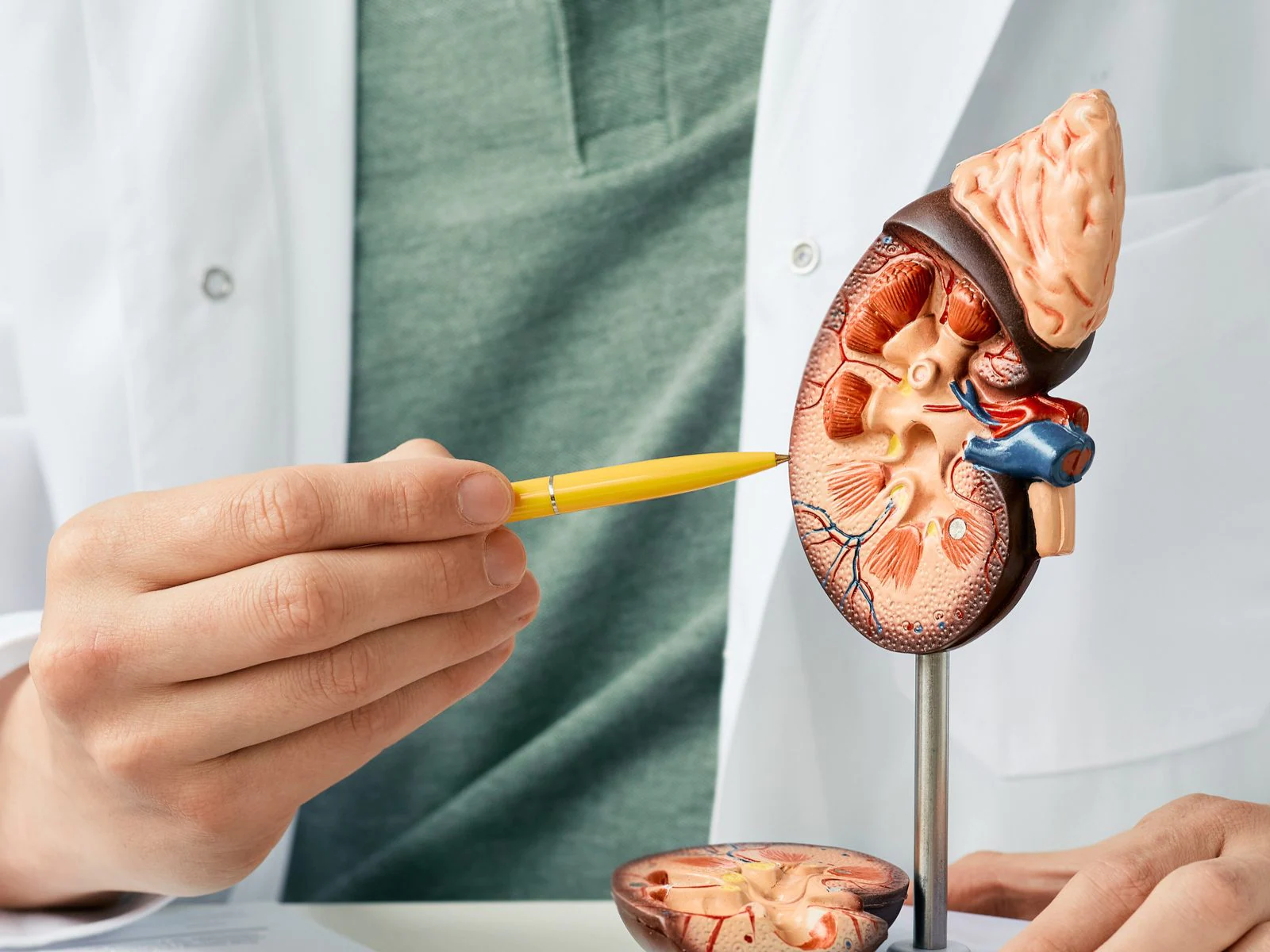By the famous urologist, kidney transplant surgeon, and robotic surgeon Dr. Vikas Jain
One of the ten most common cancers in the world, kidney cancer is a big problem for public health. As a urologist and a surgeon who does kidney transplants, I’ve helped a lot of people who have this disease. In this article, I’ll talk about the signs of kidney cancer, what causes it, and how it can be treated.
Kidney cancer signs and symptoms
Most of the time, early-stage kidney cancer doesn’t cause any noticeable symptoms. But as the cancer gets worse, a number of signs and symptoms may show that it is there:
- Hematuria, or blood in the urine, can look pink, red, or coke-colored.
- Back pain just below the ribs that doesn’t go away
- Loss of appetite and weight loss for no reason
- Tiredness and a general sense of being sick
- Intermittent fever
If you have any of these signs, you need to see a doctor right away. Early diagnosis can improve the prognosis and treatment results in a big way.
What is genuine cause of this type of cancer?
Still, no one knows for sure what causes kidney cancer. But it starts when DNA changes in kidney cells lead to uncontrollable growth and the formation of a tumor.
Having kidney cancer is more likely if you have certain risk factors:
- Smoking: People who smoke have a higher chance of getting it than people who don’t smoke.
- High body mass index (BMI) is a big risk factor when it comes to obesity.
- High blood pressure: Taking care of high blood pressure may lower the risk of kidney cancer.
- People who have a history of kidney cancer in their family are more likely to get it themselves.
- Some inherited syndromes, like von Hippel-Lindau disease and Birt-Hogg-Dube syndrome, can make the risk higher.
Different ways to treat kidney cancer
Kidney cancer treatment depends on the patient’s overall health, the type and stage of the cancer, and their own preferences. Some options for treatment are:
- Surgery is the most common way to treat this cancer. Some procedures involve taking out the whole kidney (radical nephrectomy) or just the tumor (partial nephrectomy).
- Cryoablation and Radiofrequency Ablation are minimally invasive procedures that kill cancer cells by using cold gas or high-energy radio waves.
- Targeted Therapy: Drugs that are made to work on the functions of cancer cells are used to slow or stop the growth of cancer.
- Immunotherapy, also called biological therapy, is a way to fight cancer by using the body’s immune system.
- Radiation therapy is usually not used to cure kidney cancer, but it can help relieve symptoms or treat cancer that has spread to other parts of the body.
- Robotic surgery: As a robotic surgeon, I can say that this advanced technology works well to treat this type of cancer with minimally invasive, precise surgery, both radical nephrectomy and partial nephrectomy can be done with great ease and much fewer complications using a robotic platform.
Each treatment could have both good and bad effects. It’s important to talk to your doctor about these things so you can make an informed choice about your treatment plan.
In conclusion, knowing the signs and causes of cancer in kidney can help find it early, which is important for effective treatment. I hope this article gives you the information you need to make decisions about kidney cancer. If you or someone you care about is worried about their kidney health, they should see a our top urologist in Delhi right away.
Remember that the first step in both prevention and treatment is to know what to do.


